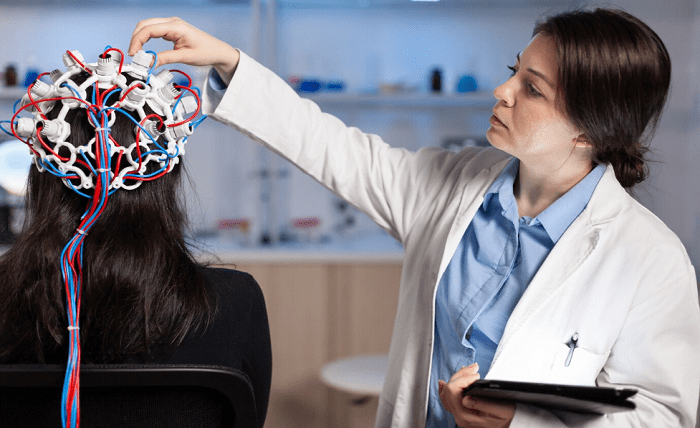Welcome to the fascinating world of CBD, where a single compound holds the potential to revolutionize our understanding of human brain function. Derived from the cannabis plant, CBD has garnered much attention in recent years for its various health benefits, particularly in treating conditions such as anxiety and chronic pain. However, there is still much mystery surrounding how exactly this compound works within our bodies. In this blog post, we will delve into the depths of scientific research to uncover and unveil the true impact of CBD on the human brain. Whether you are new to this topic or a seasoned user, get ready to be amazed by what we know about how CBD affects our brains and discover why it may be considered one of nature’s most powerful healers. So sit back and get ready for an insightful journey through the wonders of CBD.
INTRODUCTION TO CBD AND ITS GROWING POPULARITY IN THE HEALTH AND WELLNESS INDUSTRY
CBD, short for cannabidiol, is a natural compound found in the cannabis plant. It has gained significant popularity in the health and wellness industry due to its potential therapeutic benefits. One of the most discussed aspects of CBD is its effect on the brain. Research has shown that CBD can influence the endocannabinoid system in the brain, which plays a crucial role in regulating mood, appetite, and sleep. CBD has also been found to interact with serotonin receptors, which are responsible for regulating anxiety and depression. As more people discover the potential benefits of CBD, it’s no surprise that its usage is on the rise. From treating chronic pain to reducing anxiety, CBD offers a natural alternative to sometimes harmful pharmaceuticals.
EXPLAINING THE ENDOCANNABINOID SYSTEM (ECS) IN THE HUMAN BODY AND HOW IT INTERACTS WITH CBD
The Endocannabinoid System (ECS) is a complex biological system found in the human body that plays a crucial role in maintaining homeostasis. It consists of a series of receptors, enzymes and endocannabinoids, which all work in harmony to regulate a wide range of physiological processes such as appetite, pain, mood and sleep. Interestingly, this system is also responsible for the cbd effect on brain. When CBD enters the body, it interacts with the ECS by changing the way certain receptors bind to endocannabinoids. This, in turn, can lead to a myriad of effects including reduced anxiety, increased relaxation and even pain relief. Understanding the ECS and its interaction with CBD is crucial for anyone interested in exploring the potential benefits of this popular cannabinoid.
THE POTENTIAL THERAPEUTIC BENEFITS OF CBD FOR VARIOUS CONDITIONS SUCH AS ANXIETY, CHRONIC PAIN, AND EPILEPSY
Cannabidiol (CBD) is gaining popularity for its potential to alleviate various conditions such as anxiety, chronic pain, and epilepsy. But have you ever wondered how CBD works in our brains to produce these therapeutic effects? It turns out that CBD interacts with our endocannabinoid system, a network of receptors that play a crucial role in regulating various physiological functions, such as mood, appetite, and pain sensation. CBD can bind to these receptors and influence the release of neurotransmitters, which can then help to reduce anxiety, manage chronic pain, and even prevent seizures in some cases. While more research is needed to fully understand the role of CBD in treating these conditions, there is growing evidence to suggest that it could be a promising option for those seeking natural, non-addictive alternatives to traditional medication.
BREAKING DOWN THE DIFFERENT FORMS OF CBD – FULL SPECTRUM, BROAD SPECTRUM, AND ISOLATE – AND THEIR EFFECTS ON THE BRAIN
CBD, or cannabidiol, has become quite the buzzword in recent years due to its potential benefits on overall health and wellness. However, many people are confused about the different forms of CBD and how they affect the brain. Full spectrum CBD contains all of the cannabinoids found in the hemp plant, including THC, the psychoactive compound that can cause a “high” sensation. Broad spectrum CBD contains all of the cannabinoids except for THC. Meanwhile, CBD isolate is just that – pure CBD with no other compounds present. Each form has its own unique effects on the brain, with full spectrum CBD potentially causing brain fog due to the presence of THC, while broad spectrum and CBD isolate have a lower chance of causing this sensation. Understanding the differences and potential effects of each form can help individuals choose the right CBD product to fit their specific needs.
EXAMINING RECENT SCIENTIFIC STUDIES ON CBD’S IMPACT ON NEUROPLASTICITY AND BRAIN FUNCTION
In recent years, the conversation surrounding CBD and its potential benefits has grown considerably. As scientific studies continue to be conducted, there is increasing evidence to suggest that CBD may have a unique impact on neuroplasticity and brain function. Research indicates that CBD may be able to help mitigate symptoms of brain fog, which can be incredibly debilitating for those who experience it. By supporting neuroplasticity and helping to regulate brain functions, CBD may offer a viable solution for those looking to enhance their cognitive abilities and improve their overall quality of life. As researchers continue to explore the possibilities of CBD, it is clear that this compound has the potential to revolutionize how we approach brain health.
ADDRESSING COMMON MISCONCEPTIONS AND CONCERNS SURROUNDING CBD’S LEGALITY AND SAFETY
Many people are understandably concerned about the legality and safety of CBD, particularly when it comes to vaping. One common misconception is that vaping CBD will make you sleepy. While it’s true that CBD can have a calming effect for some people, it’s important to note that it won’t necessarily make you feel drowsy or sleepy. Additionally, there are many different factors that can contribute to a person feeling tired, from stress and lack of sleep to certain medications. So while there are certainly valid concerns to consider with CBD use, it’s important to make sure that you have accurate information before making any decisions about whether or not to try it.
PERSONAL EXPERIENCES FROM INDIVIDUALS WHO HAVE INCORPORATED CBD INTO THEIR DAILY ROUTINE
Personal experiences from individuals who have incorporated CBD into their daily routine have been overwhelmingly positive. Not only have they reported decreased anxiety and improved sleep, but many have also found that CBD helps with physical pain and inflammation. Some have even touted its ability to improve focus and concentration during the day. As for whether vaping CBD makes you sleepy, the answer may vary from person to person depending on their individual reaction. While some users have found vaping CBD to be relaxing and conducive to a good night’s sleep, others have reported feeling more alert and energized after vaping. It may take some experimentation to find out what works best for you, but the potential benefits of incorporating CBD into your routine are certainly worth exploring.
TIPS FOR CHOOSING HIGH-QUALITY CBD PRODUCTS AND PROPER DOSAGES FOR DESIRED EFFECTS
As the popularity of CBD continues to rise, choosing the right product can be overwhelming. With so many available options, it’s important to know what to look for to ensure you’re getting a high-quality product. Start by checking for third-party testing results and reading reviews from other users. When it comes to dosages, it’s important to start low and gradually increase until you reach your desired effect. However, you may be wondering if something as simple as one puff of a CBD vape can harm you. The answer is not straightforward, as it depends on various factors such as the concentration of CBD and the quality of the vape product. It’s always best to consult with a healthcare professional before trying any new CBD products to ensure safety and effectiveness.
SUMMARY OF KEY TAKEAWAYS AND FUTURE POSSIBILITIES FOR FURTHER RESEARCH ON CBD’S EFFECTS ON THE BRAIN
As research on CBD’s effects on the brain continues to unfold, there are many key takeaways worth noting. For one, studies have shown CBD to have potential in treating a variety of neurological disorders such as epilepsy and anxiety. Additionally, CBD shows promise in treating substance abuse disorders, as well as serving as a potential alternative to opioids for pain management. However, despite these positive effects, questions remain about the long-term effects of CBD use on the brain. As for the question, can one puff of vape harm you? the answer is not straightforward. Although CBD is generally considered safe, more research is needed to fully understand its effects on the brain and body. As the world of CBD continues to evolve, there is no doubt that further research will be crucial in unlocking its full potential.
CONCLUSION
While more research is certainly needed to fully understand the benefits of using CBD as a natural supplement for brain health, early evidence is extremely promising. This non-psychoactive compound has shown incredible potential in helping manage various issues related to the brain, including anxiety, depression, and even seizures. It’s important to note that CBD shouldn’t be viewed as a cure-all, and that different people may experience different results. However, it’s clear that CBD is rapidly becoming a popular choice for those who are seeking a safe, natural way to support better brain function. While there are concerns around the safety and risks associated with vaping, inhaling even one puff of vape liquid is unlikely to cause harm.


